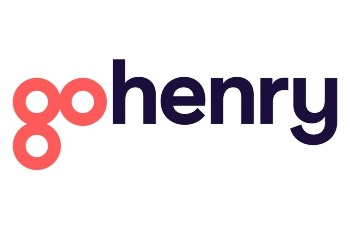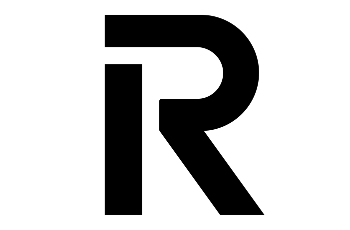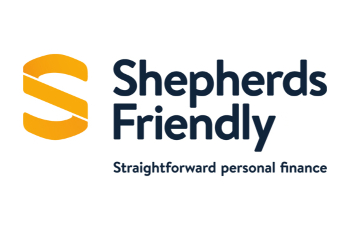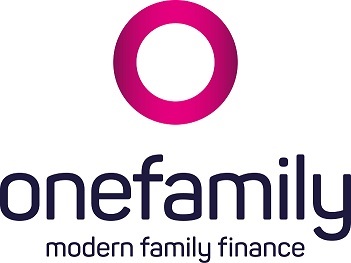Compare Latest Children's Savings Deals
Best Children's Savings Accounts
Disclaimer: Stocks and Shares Junior ISAs offer the potential for higher returns than Cash Junior ISAs, particularly if you choose to invest for the long-term. However, you do need to know that, as the underlying value of your child’s investment is linked to the fluctuations of the stock market; although the value cannot fall there is no guarantee that bonuses will be added each year.
Includes a Unitised With-Profits fund that comes with a guaranteed minimum payout when the child turns 18, provided no switches or withdrawals are made. Welcome Gift: After you start investing Scottish Friendly will pay £50 into the Junior ISA for your child
Disclaimer: The value of your investments can fall as well as rise, so your child could get back less than you paid in.
Disclaimer: Stocks and Shares Junior ISAs offer the potential for higher returns than Cash Junior ISAs, particularly if you choose to invest for the long-term. However, you do need to know that, as the underlying value of your child’s investment is linked to the fluctuations of the stock market; although the value cannot fall there is no guarantee that bonuses will be added each year.
Compare children’s savings accounts
It is generally a good idea to get children used to the idea of saving their money at a young age, so they will be more likely to manage their money responsibly as they get older.
A savings account can allow kids to put aside some or all of their pocket money, and any money they receive for special occasions such as birthdays and Christmases. This money can form a nest egg to go towards any number of big expenses, such as buying a first car, going to university or even saving towards the deposit on a house.
There are various different savings accounts to choose from and different issues to consider to make sure you get the right savings plan for your children.
Guide to Children's Savings Accounts in the UK
A children's savings account is more than just a safe place to stash birthday money; it's a powerful tool to build financial literacy and cultivate a savings habit early in life.
What is a Children's Savings Account?
A children's savings account is a bank or building society account specifically designed for individuals under the age of 18.
It's an excellent way for parents, grandparents, or guardians to start saving money for a child's future.
These accounts often come with competitive interest rates, making it possible for the savings to grow over time.
The Importance of a Children's Savings Account
Starting a savings account for your child is about more than just accumulating wealth—it's about teaching invaluable life skills.
Here's why it's so important:
- Financial Education
Children's savings accounts are a practical way to introduce youngsters to the concept of personal finance, saving, and interest.
- Building Savings Habits
It's an ideal method to teach children the importance of saving, thus establishing good financial habits early on.
- Future Preparedness
These accounts help secure funds for your child’s future needs, such as education or driving lessons.
- Earning Interest
Savings accounts typically earn more interest than regular current accounts, accelerating the growth of your child's savings.
Understanding the Basics: Interest, Deposits, and Withdrawals
- Interest
This is the money that the bank pays you for keeping your money with them.
It's usually a percentage of the total money in the account. For children's savings accounts, this rate can be higher than standard savings accounts.
- Deposits
This is the money you or your child puts into the savings account. Deposits can often be made regularly or as a lump sum.
- Withdrawals
The rules for taking money out of children's savings accounts can vary. Some accounts allow free withdrawals, while others may limit access until the child turns 18.
Remember: Choosing the right savings account for your child can set them up for a prosperous financial future, so it's essential to make an informed decision.
Types of Children's Savings Accounts in the UK
Choosing the right type of savings account for your child can be a bit of a puzzle. Here, we'll explore various types available in the UK, each with its unique features and benefits.
Easy Access Children's Savings Accounts
An easy access children's savings account allows you to deposit and withdraw money whenever you want. It's perfect if you believe your child might need the funds in the near future.
- Interest
Rates tend to be variable and generally lower than fixed-rate accounts.
- Access
Funds can be withdrawn at any time without penalty.
- Deposits
There's usually no limit to the number of deposits you can make.
Regular Saver's Accounts
These are savings accounts where you promise to save a certain amount each month.
- Interest
These accounts often have the highest interest rates, as long as you meet the monthly savings commitment.
- Access
Access to funds before the end of the term may result in penalties or loss of interest.
- Deposits
You're required to make regular monthly deposits.
Fixed Rate Children's Savings Accounts
Fixed rate accounts offer a set interest rate for a specific period.
- Interest
The interest rate is higher but fixed for a certain term.
- Access
Early withdrawals may not be allowed, or might come with a penalty.
- Deposits:
A lump sum deposit is typically required to open the account.
Junior ISAs (Individual Savings Accounts)
A Junior ISA is a tax-free savings account where money is locked away until the child turns 18.
- Interest:
Variable, but usually higher than regular savings accounts. There are also stock and shares Junior ISAs which have the potential for higher returns but also more risk.
- Access
Funds are not accessible until the child turns 18.
- Deposits
Annual deposit limits apply. For the 2023/2024 tax year, the limit is £9,000.
Child Trust Funds (CTFs)
Child Trust Funds are similar to Junior ISAs, but they're no longer available to new customers. However, it's worth mentioning for those who already hold these accounts:
- Interest
Depending on the type of CTF, interest may be fixed or variable.
- Access
Funds are not accessible until the child turns 18.
- Deposits
Like Junior ISAs, there's an annual limit on how much can be deposited into CTFs.
NS&I (National Savings and Investments) Children's Bonds
NS&I Children's Bonds are government-backed investment products that are no longer available to new customers but may still be held by some.
- Interest
Fixed interest for a set term.
- Access
Funds are tied up for a set period, typically five years.
- Deposits
A lump sum deposit was required to open the account.
Comparison and Contrasts Among Different Account Types
The table below summarises key features of different account types:
|
Account Type |
Interest |
Access |
Deposits |
|
Easy Access |
Variable, lower |
Anytime, no penalty |
Unlimited, anytime |
|
Regular Saver |
Higher, if commitment met |
Limited, penalties may apply |
Regular, monthly |
|
Fixed Rate |
Higher, fixed |
Limited, penalties may apply |
Lump sum |
|
Junior ISA |
Variable, usually higher |
At 18 |
Annual limit |
|
Child Trust Fund |
Fixed or variable |
At 18 |
Annual limit |
|
NS&I Children's Bond |
Fixed |
After set term |
Lump sum |
Ultimately, the best type of children's savings account depends on your individual circumstances, including your savings goals and how soon you think your child might need the money.
The Benefits of Starting a Savings Account for Your Child
Starting a savings account for your child comes with numerous benefits, from teaching financial discipline to securing their future.
Financial Education for Children
Opening a savings account can serve as a practical lesson in money management for kids.
It can help them understand the value of money, the importance of saving, and how interest works.
Discussing the account with them can spark conversations around budgeting, setting financial goals, and making informed financial decisions.
Encouraging Saving Habits
When children see their savings grow over time, it reinforces the benefits of saving and can instil this habit for a lifetime.
Regular contributions to their account, whether from their pocket money, birthday money, or a part-time job, can provide them with a sense of accomplishment and motivate them to continue saving.
Potential Tax Benefits
Accounts like Junior ISAs offer tax-free savings, meaning the interest accrued on the money is not taxed.
This makes the growth of the savings faster compared to taxed accounts.
Future Financial Security
A well-funded savings account can provide a financial cushion for your child's future.
Whether it's for their university tuition, buying their first car, a gap year trip, or even as a boost for their adult life, the money will be there when they need it.
The Power of Compound Interest
The earlier you start a savings account, the longer your money has to grow.
With compound interest, your child's savings will earn interest, and that interest will in turn earn more interest.
This snowball effect can significantly boost the total savings over time.
Selecting the Best Children's Savings Account
Choosing the right savings account for your child can be challenging.
However, by considering a few key factors, you can ensure you're making the right decision. Check out our comparison table at the top of this page, and compare each option based on the below variables:
Interest Rates
The interest rate is one of the most critical factors to consider.
A higher rate will allow the savings to grow more quickly.
Whether the rate is fixed or variable can also impact the growth of the savings.
While fixed-rate accounts offer a guaranteed return, variable rate accounts could potentially yield higher returns if market interest rates increase.
Access and Withdrawal Terms
Consider how and when you or your child can access the funds.
Some accounts, like easy access savings accounts, allow you to withdraw funds anytime, while others, such as Junior ISAs or fixed rate accounts, restrict access until a certain age or term.
Minimum and Maximum Deposit Limits
Different accounts have different rules around deposits.
Some may require a lump sum to open, while others may need regular monthly deposits.
Also, accounts like Junior ISAs have an annual limit on how much you can deposit.
Ensure the account you choose aligns with your ability to save and your savings goal.
Account Provider’s Reputation
While it might be tempting to go with a provider offering the highest interest rate, don't forget to consider the provider's reputation.
Look at their customer service record, financial stability, and how easy it is to manage the account, whether in-person, online or via an app.
Additional Perks and Features
Lastly, look for any additional features or perks that could benefit you or your child.
These might include bonus interest for not making withdrawals, educational resources about finance, or incentives for saving.
Remember, there's no one-size-fits-all when it comes to children's savings accounts. The best account for your child depends on your specific circumstances and goals. It's worth spending time to research and compare different options to ensure you're making the best decision.
How to Open a Children's Savings Account
Opening a children's savings account is a straightforward process, but the requirements can vary from one bank to another. Here's a general step-by-step guide to help you navigate through it.
Determine the Type of Account You Want to Open
First, decide what type of account you want to open for your child. We've covered the different types of accounts earlier, so review these options and make a selection based on your savings goal and circumstances.
Gather Required Documents
To open an account, you'll generally need:
- Proof of your identity (like your passport or driver's license)
- Proof of your address (like a utility bill or council tax bill)
- Your child's birth certificate or passport
Choose a Bank or Building Society
Next, select the bank or building society or online account where you'd like to open the account. Consider factors such as interest rates, deposit requirements, access to funds, as well as the provider’s reputation and any additional features they offer.
Visit the Branch or Apply Online
Depending on the bank, you may need to visit a branch in person to open the account, or you may be able to do it online. Follow the bank's process, which will involve filling in an application form and providing the necessary documents.
Deposit the Initial Amount
Some banks require you to deposit a certain amount to open the account. Make sure you're aware of this requirement and ready to make the initial deposit.
Regularly Review the Account
Once the account is open, it's important to review it regularly to ensure it continues to meet your child's savings needs. If interest rates fall or if your circumstances change, you may want to consider switching to a different account or bank.
How to Manage and Grow Your Child's Savings Account
Once the account is open, it's not just about making deposits – managing and growing the savings is equally important. Here are some strategies to make the most of your child's savings account.
Regular Contributions
Consistent and regular deposits are key to growing your child's savings. You could contribute a portion of your child's pocket money, encourage relatives to contribute during birthdays, or set up a direct debit from your account monthly.
Teach Financial Responsibility
Get your child involved in managing their account. Show them how to check their balance, explain how interest works, and encourage them to make decisions about saving and spending. This will instil a sense of financial responsibility and make saving more meaningful for them.
Review Interest Rates
Keep an eye on the interest rates. If rates increase elsewhere, consider transferring the savings to an account with a higher rate. Just remember to check if there are any penalties for closing the account.
Limit Withdrawals
While having access to the funds can be convenient, it can also slow the growth of the savings. Limit withdrawals to let the money grow and take full advantage of the power of compound interest.
Consider a Junior ISA
If you haven't already, consider opening a Junior ISA for your child. They offer tax-free savings, and the money is locked away until the child turns 18, ensuring the savings are used for their future.
Remember, the goal is not just to save, but to create a platform for your child to learn about money management and to secure their financial future.
Tax Implications
Understanding the tax implications of your child's savings account is crucial to maximise their savings growth. Here's what you need to know.
Tax-Free Allowance
Children, like adults, have a personal allowance – an amount they can earn from income or interest on savings without having to pay tax.
Parental Gifts Rule
While children have their own tax-free allowance, there's a rule for interest on money gifted by parents. If the interest earned on money a parent gives exceeds £100 per parent per year, the interest becomes taxable and is considered the parent's income for tax purposes.
This rule doesn't apply to money gifted by grandparents, other family members or friends.
Junior ISAs and Child Trust Funds
Junior ISAs and Child Trust Funds are tax-free savings accounts. This means any interest or investment returns earned on money in these accounts are exempt from tax, and they do not count towards the child's personal allowance.
FAQs
-
What is a children's savings account?
A children's savings account is a bank or building society account designed for under-18s, allowing children to save money and earn interest. -
Are children's savings accounts tax-free?
Children have their own tax-free personal allowance, just like adults. However, if money gifted by a parent earns interest exceeding £100 per parent, per year, it becomes the parent's income for tax purposes. You can also get a JISA which is tax-free for the child. -
What is a Junior ISA?
A Junior ISA (Individual Savings Account) is a long-term, tax-free savings account for children. The money is locked away until the child turns 18. -
How often can I deposit into a children's savings account?
This depends on the terms of the specific account. Some accounts allow regular monthly deposits, others permit ad hoc deposits, while some have both options. -
Can I withdraw money from my child's savings account?
This depends on the account type. Some accounts offer instant access, while others, like fixed-rate accounts and Junior ISAs, have restrictions on withdrawals. -
Who can open a children's savings account?
Typically, a parent or guardian opens a children's savings account, although other relatives can also open accounts for children. -
When can my child access the funds in a Junior ISA?
Funds in a Junior ISA are locked away until the child turns 18, at which point they gain full access to the funds.







